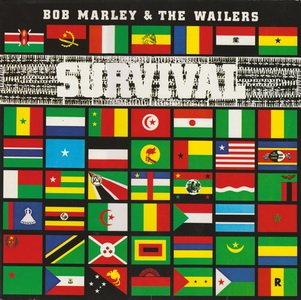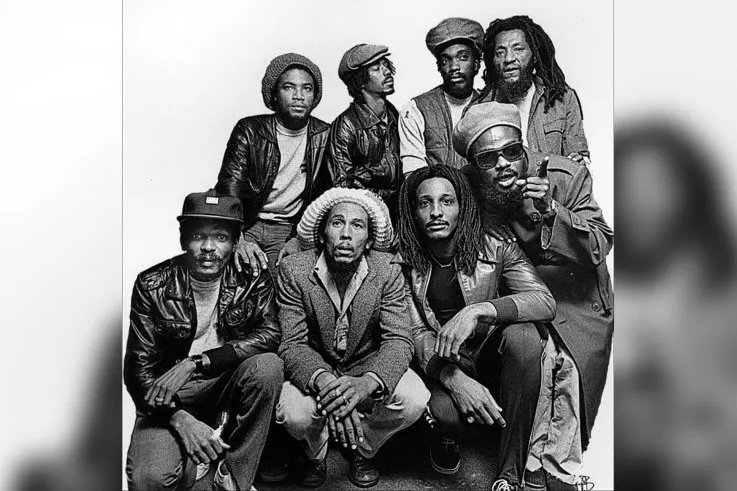Bob Marley: Reggae’s Political Poster Child
/Reggae is a unique genre of music. It is 60 years young and hails specifically from Jamaica. Within its up-tempo rhythms and signature four-beat pace live lyrics that “give voice to the oppressed.” Reggae music has always had a political undertone; it is baked into the genre by design. So naturally their biggest star, Bob Marley, is reggae’s political poster child.
The humble beginnings
Growing up in Jamaica’s ghettos did not harden Marley. A shy and timid child, it’s hard to believe he would grow up to be a musical powerhouse, giving voice to those with none. In his early teens, Marley was exposed to Jamaica’s ska scene. He recorded “Judge Not” and “One Cup of Coffee:” simple, peppy songs. He created the second half of his moniker, the Wailers, shortly after. Their hit “Simmer Down” won a local contest, and from there, a portal was opened. It was clear to Jamaica that songs of liberation needed to be popularized. And so began Marley’s influence on the world.
“One Love” peace concert and its politics
Marley was surrounded by political rife. Jamaica’s left- and right-wing parties were puppeteered by gangs. The affiliation caused unnecessary violence in Jamaica, even causing Marley to get shot. Because of the peaceful nature of the Rastafarian culture in Jamaica, both parties felt harmony was necessary. In 1978, the One Love Peace Concert was birthed by none other than Bob Marley. The concert was a bold move to make. It was an even bolder move when Marley grabbed both opposing party leaders’ hands together after his performance. A symbol of peace, it was an iconic moment in Jamaica’s history.
Marley’s discography
“One Love” is an iconic Bob Marley song. Singing woefully “There is one question I'd really love to ask: Is there a place for the hopeless sinner?” The song inspired change for Jamaica. But Marley has countless other songs in his discography that evoke his politics.
His album Survival is an unembellished display of uniting Black people in the struggle against slavery, with songs like “Africa Unite” and “Zimbabwe.” Commanding lyrics like “How good and how pleasant it would be… To see the unification of all Africans” express his stance on slavery and human rights—Black people deserve liberation.
Marley’s song “I Shot the Sheriff” is a fantastic display of storytelling with a political twist. Marley is outrunning a cop and shoots him in self-defence. But clearly in the song, Marley is not guilty and the cop is against him for other reasons. “Sheriff John Brown always hated me, for what? I don’t know.” Unfortunately for Marley, we do know. Sheriff John Brown is discriminating against him for his race. This song accurately croons about police brutality. It is still relevant 50 years later.
Other songs express Marley’s politics around capitalism and what he coins “the rat race.” A song with that very title sings “political violence fill ya city… rasta don’t work for no C.I.A.” His haunting song “Concrete Jungle” exposes the lack of freedoms for Black people, even though formal slavery has ended. “No chains around my feet, but I’m not free, I know I am bound here in captivity.” These songs make clear the slavery found in modern life today. Marley was likely singing about the political violence that kept much of Jamaica hiding behind curfews and dodging bullets. Unfortunately, political violence is still a reality for many countries today, and the message of being chained by capitalism is also a sad reality of modern life.
Marley’s influence
Marley’s global influence cannot be understated. As much as he brought reggae to a mainstream audience, he was also an influence on society as a whole. The rolling stone puts it perfectly: Marley lives on because he was a truth-teller. And a truth-teller is the pillar of political change, of protesting, of opening the eyes of the public. Marley never sugar-coated a single hardship. And yet, he sang of the possibility of peace and unity for the world. He sang it effortlessly, like he knew the future he sang of existed. Balancing peace and the truth is a hard line to walk. And when it’s done through a political lens, it can be even harder to embody. And yet, Marley has managed the impossible.
Marley forever changed the landscape of reggae and the possibility of songs inciting political change. A poster child no more, Marley has reached prophet status.
Lashanda Forsberg is a student of Professional Writing at Algonquin College. When she isn’t curled up with a book or going down a YouTube rabbit hole, she has music playing. From r&b to reggae to rap, music is an important part of Lashanda’s life. Coming from a musical family chock full of guitarists and songwriters helps Lashanda relate to and appreciate music. Find her other blog writings at lashandaforsberg.com or read her poetry on instagram @writingsfromsaturn.






